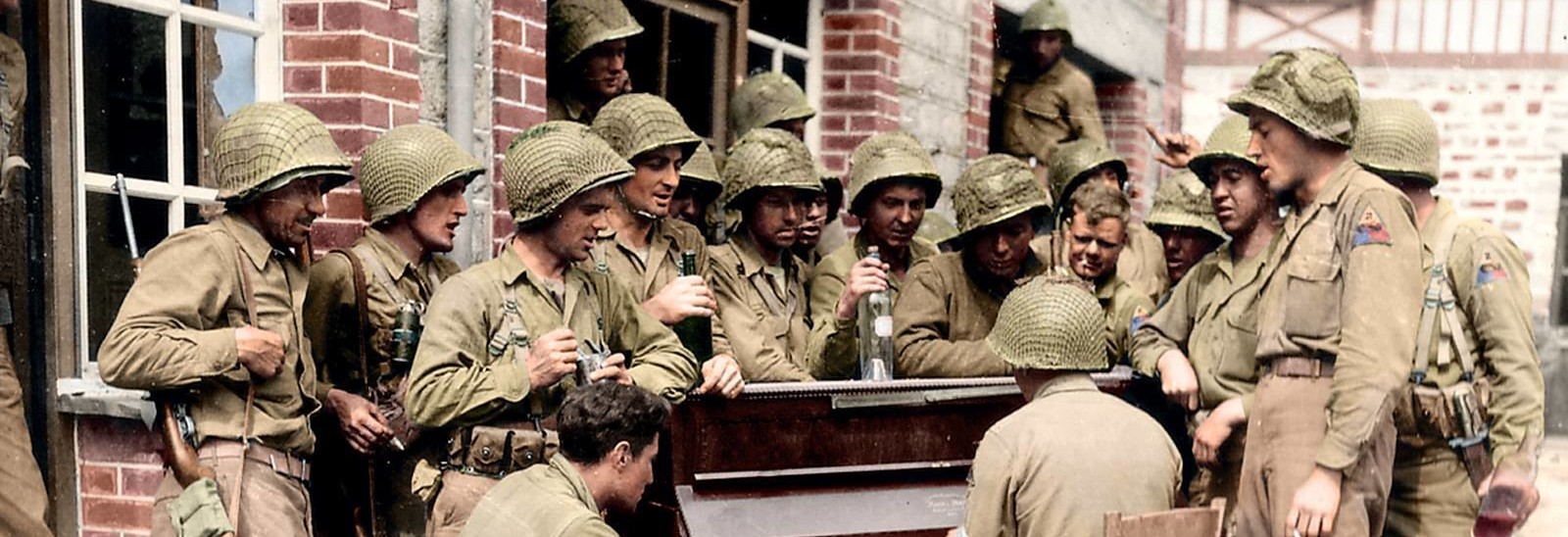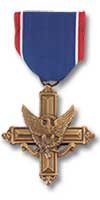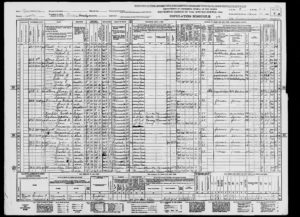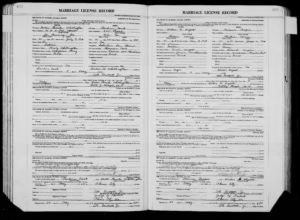The story of First sergeant
Willis George Wyatt
A Company, 17th Armored Engineer Battalion
Staffsergeant Willis Wyatt can been seen in this famous photo where he is on an halftrack from A-company that leaves Omaha Beach through the ‘Le Ruquet’ Draw, Normandy,France, June 1944
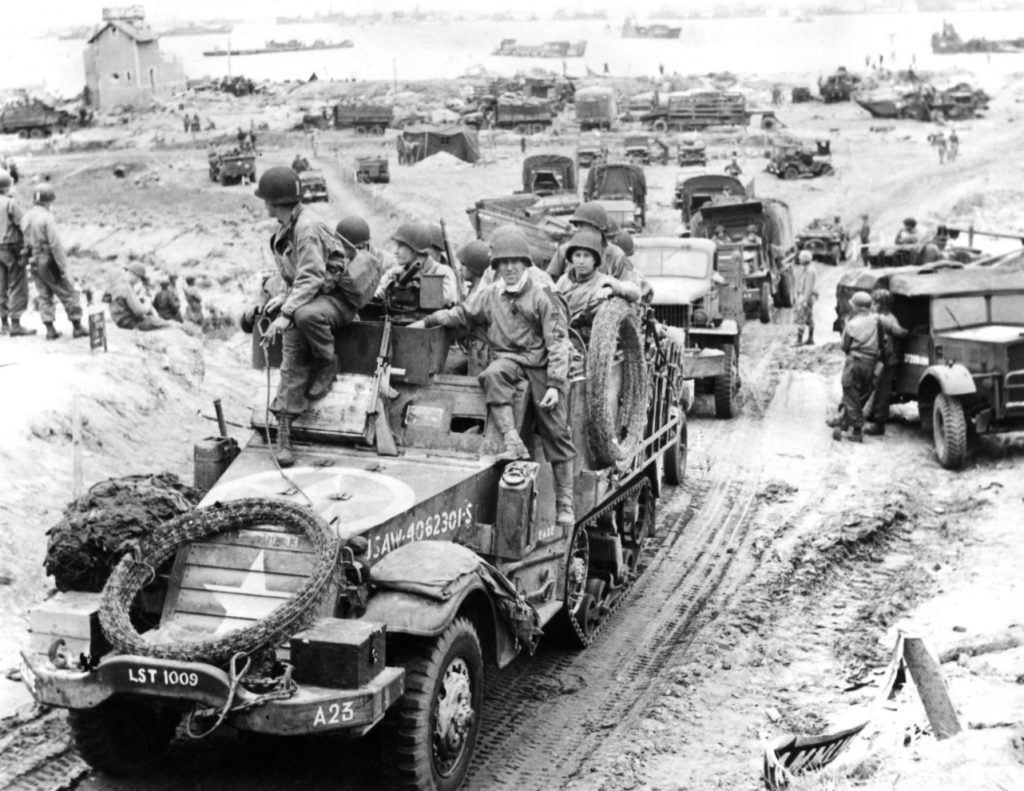
17th Armored Engineer Battalion, halftrack A-company leaves Omaha Beach through the ‘Le Ruquet’ Draw, Normandy,France, June 1944
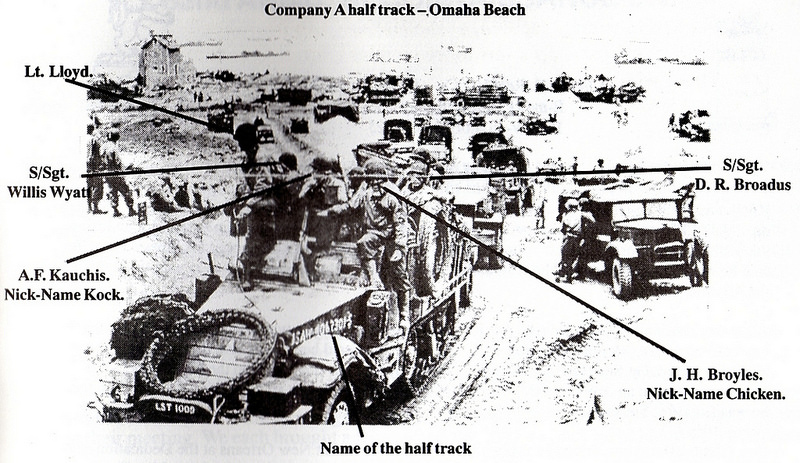
17th Armored Engineer Battalion, halftrack A-company leaves Omaha Beach through the ‘Le Ruquet’ Draw, Normandy,France, June 1944
Citation Distinguished Service Cross
Awarded for actions during the World War II
Synopsis:
The President of the United States takes pleasure in presenting the Distinguished Service Cross to Willis G. Wyatt, Staff Sergeant, U.S. Army, for extraordinary heroism in connection with military operations against an armed enemy while serving with the 17th Engineer Battalion, in action against enemy forces on 7 January 1945. Staff Sergeant Wyatt’s intrepid actions, personal bravery and zealous devotion to duty exemplify the highest traditions of the military forces of the United States and reflect great credit upon himself, his unit, and the United States Army.Headquarters, Ninth U.S. Army, General Orders No. 88 (1945)
Action Date: 7-Jan-45
Service: Army
Rank: Staff Sergeant
Battalion: 17th Engineer Battalion
Interview with Staff Sergeant Willis G. Wyatt, A Company 17th Armored Engineer Battalion
(note: Born in Bethel, December 09, 1918)
This interview was taken by: Pat Schwabik, “the Anoka County Historical”
Willis Wyatt
August, 20, 1990
Pat Schwabik
PS: It is August.20th, 1990. My name is Pat Schwabik. I’m from the Anoka County
Historical Society. I am at the Kraus-Hartig VFW Post in Spring Lake Park
continuing with interviews on World War II.
My first interview today will be with Mr. Willis Wyatt. Hello, Willis.
WW: Hi, Pat.
PS: I guess we’ll start with your full name.
WW: Willis G. Wyatt.
PS: G?
WW: Yes.
PS: You’re not gonna tell us…?
WW: It stands for George.
PS: George. Okay.
WW: And I was inducted in the Army on March 6th, 1941. By the way, that was the
first draft in Anoka County.
PS: Oh.
WW: They had enough volunteers up until that time. My number was #42 in the
county.
When I was inducted into the Army, I was sent to Fort Benning, Georgia. I had
my basic training there with the Second Armored Division under General George
Patton.
PS: Mmm.
WW: We went on several maneuvers and stuff with Tennessee, for one; Louisiana, for
one; and then I left for overseas on October 15th, 1942. We landed in Safi, North
Africa, on November 8th in ’42. We spent the remainder – we only had a little bit
of a fight there. They give up. Most of the fighting was in Algeria and farther to
the east, I guess that is.
Anyway, when the war was over in Africa, I was sent to Sicily on July 8th. Well,
we left for Sicily on the 8th and was with the invasion troops on July 10th.
PS: And how did you get to Sicily? How was it that you went?
WW: We went by LST. LST which is landing tank transportation, do you suppose?
PS: That sounds good to me.
WW: Landing ship, tank, is what it was.
Anyway, we landed there on the 10th, and it wasn’t really a tough fight there. And
we spent until – now wait a minute – yeah, November of ’43. We left November
8th – we left for England. Arrived there the 25th of November in ’43. And we
stayed there until about three days before the invasion of Normandy. I was kind
of sick with malaria when we left, but I was still in on the Normandy Beachhead
on the sixth of June, 1944.
I was injured after the St. Lo Breakthrough. I was hit with some shrapnel, and I
was flown back to England, and they operated on me there, but they said that if
they took the shrapnel out of my leg it would be stiff for the rest of my life. So I
stayed there for a couple of weeks till it healed up, and then I was sent back to my
unit. And I stayed with them until – oh, there was 66 of us left in our original
guys that left Fort Benning, and we were eligible to send one man home on an R
& R, so they put 66 names in a hat and drew mine out.
PS: Wowee!!
(Laughter)
WW: Anyway, at that time, we were at the Albe River…
PS: Mmmhmm.
WW: In Germany. And that’s where I left the outfit.
PS: Mmmhmm.
WW: So I was overseas for 31 months, and in the Army for four years, three months,
and 26 days. I arrived home on VE-Day, which I always said they declared a
national holiday because I come home.
(Laughter)
PS: Well, that sounds good to me.
WW: And then you’ve got a list of the medals and stuff that I…
PS: Mmmhmm. Well, we’ll go back a little bit into a little bit more – we’ll start back
with where you were born – I believe you’re an Anoka County boy from the very
beginning, is that right?
WW: Yes.
PS: You were born where in Anoka County?
WW: Bethel.
PS: And your parents were…?
WW: Mr. and Mrs. Archie Wyatt. My dad was born right next door to the farm that I
was born at.
PS: Hmm.
WW: He was the second generation of that farm, and my brother’s the third generation,
now.
PS: Okay. And so your brothers are…?
WW: Well, start with the oldest?
PS: Yes, that’d be fine.
WW: Lee, and then it was myself, then Earl, then Gordy, then Archie.
PS: Is there someone on the home farm now?
WW: Archie is on the home farm with one of his sons, Bruce.
PS: And where do you live now?
WW: I live in Blaine.
PS: You live in Blaine.
WW: I got 20 miles away from home.
PS: And you’re not farming.
WW: No.
PS: No. Can you tell us what you do do?
WW: Well, I’m retired at the time.
PS: You’re retired, but …
WW: When I got out of the service, Earl, my younger brother, and my next younger
brother, Gordy, started a business in Spring Lake Park.
PS: Mmmhmm.
WW: And we spent from 1946 until two years ago in a different business which wound
up with the Redi-Mix business.
PS: Uh-huh. Redi-Mix.
WW: On the corner of 85th and Central.
PS: Okay. 85th and Central. Thank you.
Do you remember exactly where you were the day that – well, December 7th, you
know, when the war broke out?
WW: Yes. You see, we were – when we were inducted in the Army, we went for a
year. So, in December, we was talking about whether – well, December 7th was
on a Sunday.
PS: Yeah.
WW: And we were talking about whether we were gonna try to go home for Christmas
or wait until our year was up and then we’d be…
PS: So at that time, you were at Fort Benning?
WW: Yes.
PS: Okay.
WW: But about noon, we got the news that we wouldn’t be going no place. Well, that
the Japs had attacked Pearl Harbor, so we went to Fort Benning and celebrated. I
don’t know why we celebrated, but we did.
PS: And how old were you at that time?
WW: Oh, I got the dates down here when I celebrated my birthdays. I must have been
23 years old then.
PS: Okay.
WW: I had this here down here. My 23rd birthday, I celebrated in Montgomery,
Alabama. 24th was in Africa, and we were at Bath. The 25th was in London,
England, and my 26th was in Paris, France.
PS: My goodness. There are not many that can make that statement.
WW: All paid for by Uncle Sam.
PS: All those parties, huh?
When you were taking your basic in Fort Benning, what was it like? Was it quite
a change in weather from Minnesota to Georgia, and everything. What was it
like?
WW: Well, you know, when I left Minnesota, we – see I was inducted in the Army, but
I didn’t leave Fort Snelling for pretty near a month. And we left by train. Well,
we were going down south where it’s warm and that. And the first stop we
stopped at was in Atlanta, Georgia, and there was about an inch of snow on the
ground. And it was cold. And I found that Georgia is one of the worst places to
spend the winter there is.
PS: Is that right?
WW: It’s cold. The temperature isn’t cold. It very seldom freezes. You know, if it
does, it’s clears up quite a ways, but the humidity or something – it’s cold down
there.
PS: Goes through you. Yeah.
WW: I suffered more from the cold there than I did at home.
PS: Maybe their buildings weren’t as ready for the winter.
WW: Well, we were outside most of the time, too, you know. And I don’t know. Of
course, we were outside all the time at home, too.
PS: And so what was your title? What rank did you achieve?
WW: Well, when I started out, I guess – well, I never did make Private First Class. I
made a T5, which was a specialist rating for driving half track tanks, and stuff.
PS: Okay. That’s what you did? That’s what your training was?
WW: That’s – well, when we were in training, I drove a half track part of the time. And
then I was made a full-fledged Corporal and then I was an Assistant Squad
Leader.
PS: Mmmhmm.
WW: And let’s see – just before we went overseas, I was made Sergeant. And then I
was a Squad Leader. And then when we were in – it must have been Belgium, I
was made Staff Sergeant, which was a Platoon Leader. First Sergeant – Platoon
Sergeant. And that’s as far as I went.
PS: Mmmhmm. When you first went into the service, what was your biggest
adjustment? Did you have any big adjustments that you had to make, like was it
the food, or was it living with all of these people at one time, or…?
WW: Well, I come from a big family.
PS: Yes. Okay.
(Laughter)
WW: That’s about what there was at the table there.
PS: Okay.
WW: No, I did – I think the worst of it was my $21 a month.
PS: I see. Okay. And then after basic, well, we know that you went right overseas.
And when you went to North Africa, how was it that you got to North Africa?
WW: We went by ship.
PS: By ship. Okay. Can you tells us what that was like?
WW: Terrible.
PS: Was it terrible? Did you get seasick?
WW: I didn’t, myself, but we hit a pretty bad storm and for Thanksgiving, they give us
some turkey that was out in the air too long. You see, I don’t know how many
people there were aboard ship, but there was so many that they had a steady chow
line. 24 hours a day. And you only ate twice a day.
PS: Oh, my.
WW: You ate your breakfast. Twelve hours later, you got your dinner. And it didn’t
make any difference, you know, what time …
PS That was.
WW: I kind of lucked out. My breakfast was nine in the morning, and dinner was nine
in the evening. But when this storm was up, and everybody was sick, well, you
couldn’t hardly get to the mess hall.
(Laughter)
PS: I’m sure. Now what did you do with these 12 hours in between chows?
WW: Well, they tried to get you so you’d get a little exercise and stuff like that, but
let’s see, we were down about three decks, and we got plenty of exercise climbing
up the ladder to get up for – there were certain times of the day you could go up
there, otherwise, you stayed down.
PS: Were there any other fellows from Anoka County that were with you in any of
this?
WW: Nobody from Anoka County. In fact, there was – I was inducted with – or sent to
Fort Benning with two fellows from Minneapolis, but then they went different
ways, so…
PS: Okay.
WW: I was the only one from – let’s see. No, I had one other fellow from Minnesota in
the company that I was in.
PS: And your company was what, again?
WW: Company A of the 17th Armored Engineers, Second Armored Division.
PS: Do you remember any special buddies, or where they were from? Are you
staying in contact with any of them?
WW: Oh, yes. In fact, I got married while I was in the service – before I went overseas.
PS: Okay. Now, did you marry a local girl?
WW: Oh, yeah.
PS: And could you tell us who this might be, please?
WW: That was Minnie Cooper, which was also from Bethel. Cooper’s Corner.
PS: Yes. Been there. And so you were married when? I’m putting you on the spot.
When was that wedding anniversary, now?
WW: May 3rd, ‘42
PS: That was very good, and that was fast.
(Laughter)
She’d be proud.
WW: Anyway, the fellow that stood up with us, we keep in contact with them, and we
see them every year at the reunion. He’s been up here, and we’ve been to his
place several times.
PS: Mmmhmm. And where was he from?
WW: Tennessee.
PS: Tennessee.
WW: He was from, at the time, Memphis, Tennessee, but he lives in Brighton,
Tennessee, now.
PS: And where were you married? Here?
WW: Phoenix City, Alabama.
(Laughter)
PS: Phoenix City, Alabama. Minnie came down to Alabama.
WW: Yes.
PS: Uh-huh. I see. And now you mentioned a reunion that you have. What reunion
is this?
WW: That is the reunion of the fellows that were in my company.
PS: Okay. And do they always have this reunion in the same place?
WW: No. We’ve had it – well, we didn’t start having it until ’75, I think, was the first
one we’ve had, and we’ve had one every year since. And we have got in contact
with about 80 people that were in the company. The company, at full strength,
was about 140.
PS: That’s good.
WW: The most we’ve ever had to a reunion was, I think, 40. But we have that every
year now, and …
PS: You wouldn’t miss it.
WW: I wouldn’t miss it for nothin’.
PS: Good. Well, that’s good to hear. Now, I have down – one of my questions is, did
you win any medals? And I know there were some medals. Can you tell me a
little bit about the medals?
WW: Well, I always said if you were in the right place at the right time, you’d get a
medal.
PS: I see. Okay.
WW: I was at the right place a couple of times, so I got one.
PS: Okay. Tell us a little bit about it.
WW: Well, I think the citations kind of speak for themselves.
PS: Okay.
WW: It’d take too long and drawed out to …I lost the one for the Purple Heart.
PS: You have a Bronze Star Medal for Heroic Achievement.
WW: Mmmhmm. And then I had a Distinguished Service Cross.
PS: Mmmhmm.
WW: And then I got a medal from the British. We were right along side of the British
Army when during the Battle of the Bulge. And that is through the same deal that
I got the Distinguished Service Cross on.
PS: Mmmhmm. And you mentioned a Purple Heart. Can you tell us a little bit about
the Purple Heart. Where were you?
WW: We were about 40 miles from Paris. It was right after what was known to us over
there as the St. Lo Breakthrough, and we’d gone out and set up a road block and
the Germans starting shelling it, and I got hit in the leg.
PS: Oh.
WW: So, I guess I covered that in here.
PS: Mmmhmm.
WW: I went back to the hospital, and they couldn’t take it out, so – and that was kind of
an odd deal. It had stayed in my leg until about five years ago, and it started to
get bigger. Then I went to the doctor, and they said, “Well, we’ve gotta take it
out.” And it didn’t really make my leg stiff, but it made it so noticeable when I do
certain exercises and stuff like that. But after – it was about 39 years it had been
there, and then it started to grow. And you should have seen the mess of stuff that
come out of there.
PS: Is that right?
WW: And the doctor says he has no idea how that could have happened.
PS: How it could be there that long…
WW: Yeah.
PS: And not cause you a problem. What, to you, is the hardest part of serving in the
military?
WW: Oh, I don’t know. I guess you kind of roll with the punches. I kind of more or
less made up my mind I had to do what they wanted you to do, and do the best
you could. I didn’t really have no big problems as far as…
PS: Now, what was the best part – if there was a best part of serving in the service,
what would it be?
WW: I think when I left to come home.
(Laughter)
PS: You’re not the first one to tell me that.
WW: We had some good times, though. Like I said, I celebrated my birthday in
different…
PS: Countries.
WW: Countries. And the First Sergeant, of course the first year we celebrated together,
he was just a Squad Leader, and then he got to be a First Sergeant, but his
birthday was the 3rd of December; mine was the 9th. And he was two years
younger than me. But anyway, we celebrated our birthdays together in those
places.
PS: Sure. Well, that’s very special. Are you still in contact with him? Is one of the
people…?
WW: No, he passed away.
PS: He passed away. Okay.
When you came home, when you were discharged, and that date again was – what
was it?
WW: I got discharged. You see, I come home on an R & R.
PS: Oh, that’s right.
WW: I got here the 8th of May, and I went back for my discharge, and I got that the first
day of July.
PS: Then what did you do?
WW: By the time I got a discharge, I was already working.
PS: You were working. Where were you working?
WW: I was working for J.W. Craig Road Contractors.
PS: Uh-huh.
WW: And so I worked for him for the rest of ’45 and the summer of ’46.
PS: Mmmhmm.
WW: Then in the fall of ’46, we started our own business.
PS: Mmmhmm. Looking back through the past nearly 50 years, do you think that the
years in the military had a long term effect on your life? Had you not served, do
you think you’d have lived your life differently?
WW: I don’t think it’d been much different. We – my brother and I had decided that we
were gonna buy that land before we went in the service.
PS: Mmmhmm.
WW: In fact, he bought it after I went in the service, and out of my $21, I had to pay $5
for the land.
(Laughter)
PS: I see. That cut it down a little, didn’t it?
WW: Well, it made you a little short.
PS: Yes.
WW: But anyway, I don’t think it had any effect except we probably would have gone
into business a little quicker.
PS: Mmmhmm. Now, tell me a little bit more about you and Minnie. Do you have a
family?
WW: We have two boys.
PS: And their names are?
WW: Roger and Floyd.
PS: Do they live in this area?
WW: They live in this area.
PS: Mmmhmm.
WW: Roger is General Manager of the Redi-Mix plant that we just sold. And Floyd is
in partners with Banka, which have Bank Alliance sales.
PS: Mmmhmm.
WW: And they each have a son and a daughter.
PS: Mmmhmm. You have grandchildren.
WW: Yeah, I have four grandchildren.
PS: Mmmhmm.
WW: And my oldest one is twenty and the youngest one is twelve.
PS: Mmmhmm. So that makes a pretty good life.
How do you feel about the recent Persian Gulf situation? Have you any thoughts
on that?
WW: Well, I think about it. I just don’t want it to turn out like another Vietnam.
PS: Mmmhmm.
WW: Well, I look at it this way. We fought for freedom, and I think we should keep it.
That’s what I think.
PS: If you had any words of wisdom or final thought that you wanted to add to this
tape for people who might be listening to it 50 years from now, what would your
words of wisdom be?
WW: (Laughter)
I really don’t know.
PS: You’re such a positive person.
WW: Things change so fast.
PS: That’s right.
WW: Well, I think 50 years from now it would be so far off base, that…
PS: Oh, I don’t know. There are certain things that I think are – you know – still kind
of basic. I just thought if there was something that you would tell your
grandchildren, for instance. You know, “Always remember…” whether it’s
honesty or “always remember your flag and your country,” or…
WW: Well, they know that right now…
PS: They know?
WW: After this flag burning stuff that’s going on, they know what I think about that.
PS: Is that right? Yeah.
WW: Well, honesty, I think, is the main part of life.
PS: Yeah.
WW: And if you are honest, you’ll get along.
PS: Well, can you think of anything else that we might add to this tape before we
conclude it?
WW: Oh, I think that’s about as much as anyone would want to listen to.
PS: Well, I’m not so sure about that.
I would like to just read this because we have plenty of tape left, so I’m just gonna
go down this little list here, and it’s “The Citation for Sergeant Willis G. Wyatt,
Corps of Engineers, 17th Armored Engineer Battalion, for heroic achievement on
the 28th of November in 1944, in Germany, in connection with military operations
against the enemy. Sergeant Wyatt with six men of his squad, led a mine clearing
party that preceded a column of tanks and infantry into the town of Barman,
Germany. The attack began at 1230 hours from a depolated position about 400
yards southwest of the town, and moved in two columns. Each column consisting
of an engineer mine-clearing party, a platoon of tanks, and a company of infantry.
When the enemy observed the coming attack, they placed heavy barrages of
artillery fire on the two avenues of approach. Sergeant Wyatt, working in the
right column, watched for opportunities to work between barrages, and kept on
with the mine clearing, although the infantry was delayed in moving forward with
the tanks, Sergeant Wyatt continued working without the infantry support thus
enabling the tanks to move into the town. Fifteen minutes after the engineers
entered the town, the infantry moved into town and took up positions as the
engineers. Sergeant Wyatt established contact with the engineers working in the
left column, and together they made a systematic clearance of the streets of the
town, completing their work by 1700 hours.
Sergeant Wyatt’s aggressive leadership and heroic achievement under fire were
an inspiration to the men working with him, and reflected great credit upon
himself and upon the military service. Entered military service from Minnesota.”
And that is signed by an E.N. Harmon, Major General, U.S. Army Commanding.
Okay. And then the Award of Distinguished Service Cross Citation
“Staff Sergeant Willis G. Wyatt, Corps of Engineers, while serving with the Army
of the United States, distinguished himself by extraordinary heroism in
connection with military operations against the enemy. On January 7th, 1945, in
Belgium, Sergeant Wyatt, a Platoon Sergeant, with complete disregard of his own
personal safety, crawled from a covered position to clear an enemy mine field,
which was under direct cover of small arms and artillery fire. Sergeant Wyatt
gallantly made twelve trips to and from the mine field with German infantry 50
yards from him. Sergeant Wyatt’s courageous action in clearing the mine field
enabled his unit to continue on its mission. The extraordinary heroism and
courageous action of Sergeant Wyatt reflect great credit upon himself and are in
keeping with the highest traditions of the military service.”
And the Military Medal
“On the afternoon of the 8th of January
WW: Wait! That’s the British. They got mixed up. They got a different day there, too.
PS: Oh, is that right?
WW: Yeah. I got that after I got home.
PS: Is that right? Okay. And that has to do with the one…
WW: With the Distinguished Service, yeah.
PS: Yes. Uh-huh. And then the Honorable Discharge, which took place on July 1st,
1945.
Well, that’s a very nice record, and something you can certainly be proud of. And
I thank you very much for taking your time to tell us your story, in your words. I
appreciate it. You are a part of Anoka County’s history and, therefore, very
important to us.
WW: (Laughter)
PS: And we appreciate it. And I will see that you get your picture back. That’s a very
nice picture. And then a copy of the picture that I took of you today.
WW: Okay. That’d be nice.
PS: And if there’s anything else that you’d like to add, you have one last chance.
We’ve still got lots of tape.
WW: Well, I think that’s it.
PS: That’s it. Okay. Thank you very much.
United States World War 2 Army Enlistment Records
Uknown
U.S. Sensus 1940
Role |
Sex |
Age |
Birthplace |
|
| Archie B Wyatt | Head | M | 48 | Minnesota |
| Jessie A Wyatt | Wife | F | 44 | Minnesota |
| Leigh J Wyatt | Son | M | 22 | Minnesota |
| Willis G Wyatt | Son | M | 21 | Minnesota |
| Erle L Wyatt | Son | M | 19 | Minnesota |
| Mary E Wyatt | Daughter | F | 16 | Minnesota |
| Archie B Wyatt | Son | M | 12 | Minnesota |
| Gordon F Wyatt | Son | M | 10 | Minnesota |
Alabama County Marriages, 1809-1950
| Name | Willis G Wyatt | |||
| Gender | Male | |||
| Event Type | Marriage | |||
| Event Date | 03 May 1942 | |||
| Event Place | Russell, Alabama, United States | |||
| Age | 23 | |||
| Birth Year (Estimated) | 1919 | |||
| Father’s Name | Archie Wyatt | |||
| Mother’s Name | Jessie Wicklander | |||
| Spouse’s Name | Minnie Bae Cooper | |||
| Spouse’s Gender | Female | |||
| Spouse’s Age | 21 | |||
| Spouse’s Birth Year (Estimated) | 1921 | |||
| Spouse’s Father’s Name | Leland Cooper | |||
| Spouse’s Mother’s Name | Amanda Bredenbert | |||
Birth of the sons of Willis G. Wyatt
First son: Roger Allen Wyatt was born on 3 December 1946
Second son: Clyde Donald Wyatt
from Minnesota Birth Index
| Name | Clyde Donald Wyatt | |||
| Event Type | Birth | |||
| Event Date | 20 Mar 1949 | |||
| Event Place | Hennepin, Minnesota, United States | |||
| Father’s Name | Willis George Wyatt | |||
| Mother’s Name | Minnie Mae Cooper | |||
Clyde Donald Wyatt would marry Andrea Lynn Thompson on July 29, 1971, in Anoka County, Minnesota.
Grave Record of Willis G. Wyatt
Details
| Name | Willis G. Wyatt |
| Birth Date | December 09, 1918 |
| Death Date | November 17, 2000 |
| Age at Death | 81 |
Veteran Status
|
Military Branch
|
US ARMY |
|
Military Rank
|
S SGT |
|
War(s)
|
World War II |
Research © by: Martijn Brandjes
Text © by: Martijn Brandjes
Photos © by: None
